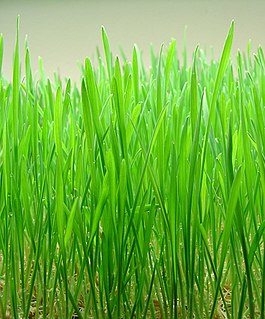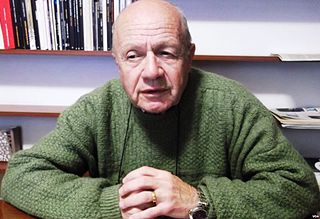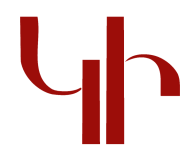
Nowruz is the Iranian New Year, also known as the Persian New Year, which is celebrated worldwide by various ethno-linguistic groups.

Qamishli is a city in northeastern Syria on the border with Turkey, adjoining the Turkish city of Nusaybin, and close to Iraq. According to the 2004 census, Qamishli had a population of 184,231. Qamishli is 680 kilometres (420 mi) northeast of Damascus.

Human rights in Turkey are protected by a variety of international law treaties, which take precedence over domestic legislation, according to Article 90 of the 1982 Constitution. The International Covenant on Civil and Political Rights (ICCPR) was not signed by Turkey until 2000. The issue of human rights is of high importance for the negotiations with the European Union (EU). Acute human rights issues include in particular the status of Kurds in Turkey. The Kurdish–Turkish conflict has caused numerous human rights violations over the years. There is an ongoing debate in the country on the right to life, torture, freedom of expression as well as freedoms of religion, assembly and association.

Newroz or Nawroz is the celebration of the traditional Iranian peoples' New Year holiday of Nowruz in Kurdish culture. Before the Islamization of the Iranic peoples in Asia, the ancestors of the modern Kurds followed Zoroastrianism. In Zoroastrian doctrine, fire is a symbol of light, goodness and purification. Angra Mainyu, the demonic anti-thesis of Zoroastrianism, was defied by Zoroastrians with a big fire every year, which symbolized their defiance of and hatred for evil and the arch-demon. In Kurdish legend, the holiday celebrates the deliverance of the Kurds from a tyrant, and it is seen as another way of demonstrating support for the Kurdish cause. The celebration coincides with the March equinox which usually falls on 21 March and is usually held between 18 and 24 March. The festival has an important place in terms of Kurdish identity for the majority of Kurds, mostly in Iraq, Turkey and Syria. Though celebrations vary, people generally gather together to welcome the coming of spring; they wear coloured clothes and dance together.
Kurdish women have traditionally played important roles in Kurdish society and politics. In general Kurdish women's rights and equality have improved dramatically in the 21st century due to progressive movements within Kurdish society. However, despite the progress, Kurdish and international women's rights organizations still report problems related to gender equality, forced marriages, honor killings and in Iraqi Kurdistan also female genital mutilation (FGM).

İsmail Beşikçi is a Turkish sociologist, philosopher, revolutionary, and writer. He is a PEN Honorary Member. He has served 17 years in prison on propaganda charges stemming from his writings about the Kurdish population in Turkey.

Ara Sarafian is a British historian of Armenian origin. He is the founding director of the Gomidas Institute in London, which sponsors and carries out research and publishes books on modern Armenian and regional studies.

Selahattin Demirtaş is a Turkish politician of Zaza Kurdish descent, member of the parliament of Turkey since 2007. He was co-leader of the left-wing pro-Kurdish Peoples' Democratic Party (HDP), serving alongside Figen Yüksekdağ from 2014 to 2018. Since November 2016 he has been detained by the Turkish state. Demirtaş was the presidential candidate of the HDP in the 2014 presidential election, coming in third place with 9.77% of the vote. The HDP executive board also fielded Demirtaş as their candidate for the 2018 presidential election. Running from prison, he came in third with 8.40% of the vote.

The People's Protection Units or People's Defense Units is a mainly-Kurdish group in Syria and the primary component of the Syrian Democratic Forces (SDF). The YPG mostly consists of ethnic Kurds, but also includes Arabs and foreign volunteers; it is closely allied to the Syriac Military Council, a militia of Assyrians. The YPG was formed in 2004 as the armed wing of the Kurdish leftist Democratic Union Party. It expanded rapidly in the Syrian Civil War and came to predominate over other armed Kurdish groups. A sister group, the Women's Protection Units (YPJ), fights alongside them. The YPG is active in Northern and Eastern Syria.

Salih Muslim Muhammad is the former co-chairman of the Democratic Union Party (PYD), the driving power behind the de facto autonomous Kurdish-controlled region of Rojava in Northern Syria. As the deputy coordinator of the National Coordination Committee for Democratic Change, he is also the most prominent member of the Kurdish opposition in the Syrian Civil War.

The Kurdish–Turkish peace process, also known as the Solution process, was a peace process which aimed to resolve the long-running Kurdish–Turkish conflict (1978–present). The conflict has been ongoing since 1984 and resulted in some 40,000–100,000 mortal casualties and great economic losses for Turkey as well as high damage to the Kurdish population. Though there was a unilateral cease-fire between 1999 and 2004, the sides failed to gain understanding and the conflict became increasingly violent. The 2013 truce was working until September 2014. But when the relations became strained due to spillover of the Syrian Civil War; the truce fully collapsed in July 2015, with the renewed full-scale warfare in South-Eastern Turkey.

The Gomidas Institute is an independent academic institution "dedicated to modern Armenian and regional studies." Its activities include research, publications and educational programmes. It publishes documents, monographs, memoirs and other works on modern Armenian history and organizes lectures and conferences. The institute was founded in 1992 at the University of Michigan in Ann Arbor. It is based in London and maintains a United States branch in Cleveland. British-Armenian historian Ara Sarafian serves as its executive director. Since 1998, the institute has been publishing a quarterly journal titled Armenian Forum.

Turkey, which had had a relatively friendly relationship with Syria over the decade prior to the start of the civil unrest in Syria in the spring of 2011, condemned Syrian president Bashar al-Assad over the violent crackdown on protests in 2011 and later that year joined a number of other countries demanding his resignation. In the beginning of the Syrian Civil War, Turkey trained defectors of the Syrian Army on its territory, and in July 2011, a group of them announced the birth of the Free Syrian Army, under the supervision of the Turkish National Intelligence Organisation, which began arming and training them in May 2012., offering them a safe zone and a base of operations. Together with Saudi Arabia and Qatar, Turkey has also provided the rebels with arms and other military equipment. Tensions between Syria and Turkey significantly worsened after Syrian forces shot down a Turkish fighter jet in June 2012, and border clashes erupted in October 2012. On 24 August 2016, the Turkish Armed Forces began a declared direct military intervention into Syria, mainly targeting the People's Protection Units but also the Islamic State of Iraq and the Levant.

The Women's Protection Units or Women's Defense Units is an all-female militia actively fighting in Northern Syria. The YPJ is one of the main two armed forces in Rojava, the other being the People's Protection Units militia, which includes both men and women. While the YPJ, and the YPG in general, is mainly associated with Kurds, the organization also includes other ethnoreligious groups of Northern Syria.

Figen Yüksekdağ Şenoğlu is a Turkish politician and journalist, who was a former co-leader of the left-wing Peoples' Democratic Party (HDP) of Turkey from 2014 to 2017, serving alongside Selahattin Demirtaş. She was a Member of Parliament for Van since the June 2015 general election until her parliamentary membership was revoked by the courts on 21 February 2017. Her party membership and therefore her co-leadership position were revoked by the courts on 9 March 2017 following a six-year prison sentence for allegedly distributing terrorist propaganda.

The foreign relations of the Autonomous Administration of North and East Syria refers to the external relations of the self-proclaimed autonomous region of the Autonomous Administration of North and East Syria. The region, consisting of three regions was formed in early 2014 in the context of the Syrian Civil War, a conflict that has caused the involvement of many different countries and international organizations in the area.

The 11th Nationalist Movement Party Ordinary Congress was a political party convention held by the Turkish right-wing Nationalist Movement Party (MHP) on 21 March 2015. The Congress resulted in the re-election of Devlet Bahçeli as party leader, with rivals failing to obtain enough signatures to contest the leadership election.

Aghperig monastery, also known as Beyaz Kilise, is a medieval Armenian monastic complex in the Sasun Mountains of eastern Turkey. It is located 56 kilometres West of Lake Van in the north of the Sassun mountains in the Sason district in the province of Bitlis. The monastery was built above a natural spring from where it gets its name Sourp Aghperig.


















